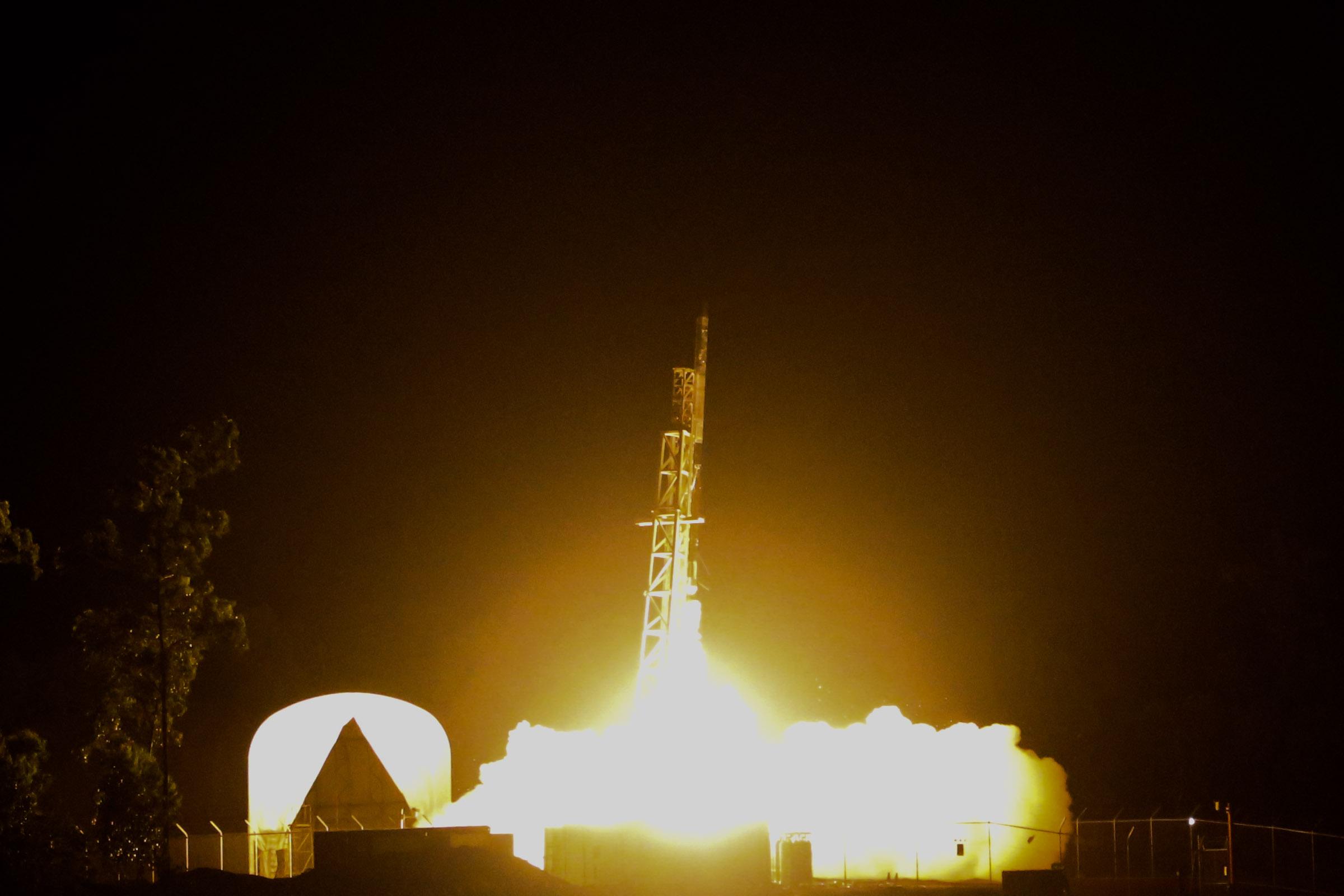Boosting Australian space sector would also boost economy, defence
Posted By Eric Lies on July 8, 2024 @ 12:11

No country is better positioned to capitalise on the growing push into the final frontier of space than Australia. Becoming the premier destination for commercial space launch would not only provide ample economic growth but would bolster national security resilience. The government should leverage its geography as well as the burgeoning fields of additive manufacturing and artificial intelligence to encourage commercial space operations and develop strategic depth.
In discussions with Australian space industry leaders, a line is often heard: ‘We can offer more than just dirt [launch sites] if there’s policy support.’ Nonetheless, Australia’s prime geographic position is key to jumpstarting the industry.
There are already several space launch sites [1] within the country that have the potential to become space industry hubs, with surrounding business complexes that would facilitate launches. A launch to orbit is expected later this year [2], following several to sub-orbital trajectories, proving the capacity of the launch sites. Adding to their attractiveness is the existing import-export infrastructure within Australia, which would connect the launch sites to global shipping networks.
One challenge in expanding Australia’s space industry is hardware maintenance. Given Australia’s relatively small manufacturing sector [3], it will need to source repair parts internationally, which will complicate maintenance logistics even with a robust import infrastructure.
A way to mitigate this is to lean into additive manufacturing, which can create just-in-time repair parts and assemblies with unique geometries. Delays would be minimised, and customers would see higher value in using Australia as a launching point. The capability could then be applied to making military hardware, supporting commercial viability of the manufacturing operations and strengthening national defence.
Integrating cutting edge artificial intelligence into all aspects of the space industry is key. Collecting and applying mass data on part failure rates, production timelines, usage and so on will also improve efficiency [4] of launch operations and maintenance. These cost savings will encourage growth and help ensure that the support industry surrounding Australian space ports can win against the international competition.
Additionally, the processes that are used by maintenance and logistics managers to streamline production, repairs and fabrication of complex space components can be applied to the armed forces [5] and military manufacturing. Again, this gives a commercial viability to vital national-security technology and skills.
Agile manufacturing processes and AI-enabled efficiencies will be key in supporting Australia’s small workforce. Workers in Australia are generally highly educated [6] and technologically competent [7], but they’re fewer in number and more expensive [8] than those in neighbouring countries. Complementing a smaller contingent of workers with efficiency-boosting AI and agile manufacturing would increase the responsiveness of the industries, ensure high quality of products and lift economic growth.
While the lack of large-scale manufacturing experience can be considered a weakness, it also presents opportunities. Australia would not need to use capital to shift current production processes, and there would be no entrenched interest groups resisting the change to less labour-intensive production.
For the Australian space sector to take off, the government must shift the policy landscape to incentivise the industry and support the adoption of advanced enabling technology.
The formation of the Australian Space Agency in 2018 was a critical first step down this path, but more needs to be done. Increasing funding to the agency would allow it to expand its international presence, make connections with foreign partners, develop a coherent Australian space policy and become a reliable partner for the private space sector.
Since Australia has nearly perfect geography for space launch, government assistance with advertising to key foreign industry leaders in conjunction with initial support to local industry would jumpstart the sector, creating a positive cycle of investment.
Australia has a chance to boldly launch into the forefront of the space industry. This requires political will and a coherent policy strategy but would pay outsized dividends. Expansion of the sector would not only bring economic growth but would diversify Australia’s economy and particularly its industrial sector. These benefits alone merit the investment of time and resources. This would not be a case of spending money on something that, while necessary, isn’t profitable.
It’s time to prioritise space.
Article printed from The Strategist: https://aspistrategist.ru
URL to article: /boosting-australian-space-sector-would-also-boost-economy-defence/
URLs in this post:
[1] space launch sites: https://spacenews.com/new-agreement-enables-u-s-launches-from-australian-spaceports/
[2] this year: https://spaceanddefense.io/space-agency-delays-hold-up-gilmour-spaces-rocket-launch-as-spaceport-opens/#:~:text=Gilmour%20Space%20says%20they%20are,Queensland%20on%20April%204%2C%202024.
[3] manufacturing sector: https://data.worldbank.org/indicator/NV.IND.MANF.ZS?locations=AU
[4] improve efficiency: https://www2.deloitte.com/us/en/pages/consulting/articles/using-ai-in-predictive-maintenance.html
[5] applied to the armed forces: https://www.boozallen.com/markets/defense/indo-pacific/artificial-intelligence-for-predictive-maintenance.html
[6] highly educated: https://www.oecd-ilibrary.org/sites/5bbd2846-en/index.html?itemId=/content/component/5bbd2846-en
[7] technologically competent: https://dsgi.wiley.com/global-rankings/
[8] more expensive: https://www.oecd-ilibrary.org/sites/593a7dac-en/index.html?itemId=/content/component/593a7dac-en
Click here to print.